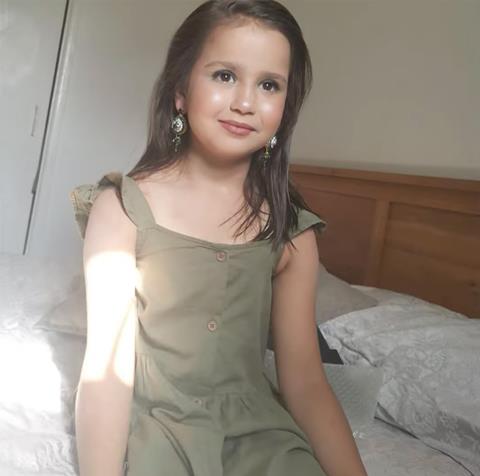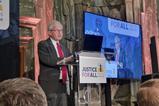The family court’s transparency drive is being tested as journalists seek to overturn an order restraining the identification of judges involved in proceedings relating to the murdered Sara Sharif
January is turning into a pivotal month for open justice in the family court.
The family court transparency pilot is deemed to have worked so well since its 2023 launch that changes to the procedure rules and new practice directions will take effect across England and Wales later this month. The presumption is that a transparency order will be granted unless there is a legitimate reason not to do so.
Such an order protects the anonymity of children and the family, but allows journalists and legal bloggers to report on a case. Parties can also be quoted and interviewed, and journalists are entitled to access certain court documents.
This ongoing culture shift was conceived to encourage scrutiny and foster a greater public understanding of – and trust in – how a complex system works.
There have been no known breaches of anonymity under the pilot, which was extended to private law cases and then rolled out to more courts.
Meanwhile, the Court of Appeal has been hearing an appeal over an order to restrain the identification of the three judges who sat in high-profile family court proceedings relating to 10-year-old Sara Sharif (pictured), who was murdered by her father and stepmother in 2023.

Mr Justice Williams ruled on 19 December that the media could not name the judges as ‘Article 10 rights [protecting rights of freedom of expression] are outweighed by the Article 8 rights of the judges [to respect for private and family life]’. Naming them would be ‘a disproportionate interference with such rights’.
The judge added: ‘The extent to which I have permitted disclosure and publication is to enable scrutiny of the processes and decision-making which occurred. If, contrary to my own provisional evaluations, there are serious failings in individuals those might justify further consideration by me (either before or after any other process has concluded) for permission to put that name into the public domain so that there can be a degree of public accountability of an individual.
‘The responsibility for Sara’s death lies on her father, her stepmother and her uncle, not on social workers, child protection professionals, guardians or judges.’
'None of the judges sought anonymity or were involved in the proceedings below. However, each of them has serious concerns about the risks which would arise if they were now identified'
Mathew Purchase KC
Williams added that judges would not be named ‘without enquiries being made of them as to their health and their response to the possibility of being named’.
The appeal is being brought by journalists Louise Tickle and Hannah Summers, funded by charity Law for Change. They argue that the ‘unprecedented’ order was made in a ‘procedurally irregular manner’. The restriction was imposed after Williams heard applications for disclosure of documents from historical proceedings and permission to publish information relating to them.
In written submissions on behalf of the three judges, Mathew Purchase KC argued that they ‘do not consider that they are in a position to provide general or case-specific submissions on the difficult questions raised by this appeal’. He added: ‘None of the judges sought anonymity or were involved in the proceedings below. However, each of them has serious concerns about the risks which would arise if they were now identified, particularly in the prevailing circumstances, including the content and often inflammatory nature of public and media commentary arising from the intense scrutiny which has followed from Williams J’s judgment.
‘It is important to underline that those concerns relate not only to their own personal wellbeing, but also to their family members and others close to them, whose interests the court may consider should also be taken into account.’
It was noted in court that the judges’ identities were all reportable before Williams’ order as they were then in the public domain.
Chris Barnes, for Tickle and Summers, argued that ‘the answer to any real risks that might arise are not answered in this remedy’ of anonymising judges. Identifying judges is a ‘fundamental’ element of the open justice principle and transparency within the family court, he added.
Had Williams’ order not been made, then public interest in the judges’ names would not be where it currently stands, the court heard. Barnes also argued that safety concerns are a matter for HM Courts & Tribunals Service rather than a problem that ought to be resolved by anonymity orders.
The Court of Appeal had been expected to give an ex tempore judgment, but master of the rolls Sir Geoffrey Vos said the court would not do so in order to ‘take time to consider our judgments with great care’.
Whatever is decided will have far reaching consequences. While Sir Andrew McFarlane, president of the Family Division, strives to make the jurisdiction more open, the Court of Appeal is poised to rule on a fundamental parameter of that transparency principle.
This article is now closed for comment.




































2 Readers' comments